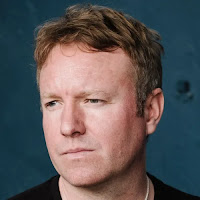When I was a boy, an Irish woman called Lil would clean our house from time to time. Her son, Tony, was older than me, Hackney-born. He became a builder, started off working with our next-door neighbour, Harry, which meant a fair few lunchtimes in the public bar of the Prince of Wales trying to keep up with the older labourers. He’d do odd bits and pieces at ours, too. I was fourteen, I think, when he suggested we go for lunch at a caff on Chatsworth Road. I got in his car – I remember it was very low to the ground – and we drove off. Just past Rushmore, my old school, there were a couple of blokes about Tony’s age waving at him and he pulled over. There was also a young lad with them, younger than me. Wait here, Tony told me, and he got out. I watched the three older blokes in animated conference. When they were finished, Tony and another fella climbed back in, and the other one and the young one got into another car. I remember we drove around for about five minutes before coming to a sudden stop, a teenage boy panicking on the pavement. Engine running, Tony and the bloke jumped out, grabbed the kid, and then pinned him against the wall. The other one and the young one got out of the other car and went over. They were carrying a baseball bat. I could see the young one answering questions, nodding. The teenager handed over a watch, crying. Nothing happened for a moment, and I waited, nervous. What would be the punishment? Clearly this bigger kid had nicked this younger kid’s watch, and the younger kid had got his big brother to sort it out, which he had. Let’s have lunch, then, I was thinking. Then I watched as the teenager was force-fed the watch. He was eating the watch, I realised, eating it. Punishment fitting the crime and all that. In the caff, over bacon, egg, chips, and beans, no one really talked about it, and I certainly never told anyone.
I wanted to write about where I grew up, Hackney, in the late-seventies and eighties. Although White Riot is very much a political novel, it is also hugely personal: I accessed the sights, sounds, and smells of my childhood to try and recreate the sensual experience of it. I thought about how the place changed, who moved away, who stayed, why, who had power, who was disenfranchised, and why.
I’ve never wanted to write a whodunnit; I’ve always wanted to write about place, about fiction based on fact. My fiction addresses the discourses of power and the specificity of crime, why something happened precisely where it did, and is an attempt to illuminate the reasons why. You can strip away the layers of city in a crime narrative.
In the author’s note to her epic French Revolution novel, A Place of Greater Safety, Hilary Mantel writes: ‘The reader may ask how to tell fact from fiction. A rough guide: anything that seems particularly unlikely is probably true.’
In White Riot, the more outlandish political events, the most shocking violence, the most brazen corruption scams are all real, or based very closely on real-life incidents. It has always seemed to me that real life offers the best structural and societal models around which to thread a fictional narrative. Crime is political, I think, and more politics is criminal than we’d care to admit.
There’s that old adage: ‘You couldn’t make it up.’
More and more, I’m beginning to think that you shouldn’t.
White Riot by Joe Thomas (Quercus Books) Out Now
1978:The National Front is gaining ground in Hackney. To counter their influence, anti-fascist groups launch the Carnival Against Racism in Victoria Park. Observing the event is Detective Constable Patrick Noble, charged with investigating racist attacks in the area and running Spycops in both far-right and left wing groups. As Noble's superiors are drawn further into political meddling, he's inveigled into a plot against the embattled Labour government. 1983: Under a disciplinary cloud after a Spycops op ended in tragedy, Noble is offered a reprieve by an old mentor. He is dispatched in the early hours to Stoke Newington police station, where a young black man has died in suspicious circumstances. This is Thatcher's Britain now, a new world that Noble unwittingly helped to usher in, where racial tensions are weaponised by those in power.
Photo credit: Oliver Holms



No comments:
Post a Comment